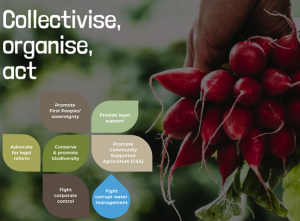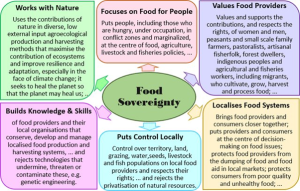1. Understanding Aboriginal and Torres Strait Islander Food Sovereignty
“Thinking about food sovereignty in Australia. Central themes are decolonisation, resistance against global capitalism, and the resurgence of Indigenous ways of life.”
(ABC, Eating as a settler-colonial act: Food justice and Indigenous sovereignty)
The ability of Aboriginal and Torres Strait Islander Peoples in remote communities to hunt traditional foods and gather bush tucker can be essential for their well-being and connection to Country. Central to Aboriginal and Torres Strait Islander Peoples sovereignty is food sovereignty, which emphasises the right to define and produce one’s own food system, deeply rooted in cultural and spiritual connections. However, food insecurity in remote communities is a serious public health issue. Exploring Aboriginal food sovereignty in the urban farms and gardens of cities is also crucial.
Vivienne ‘Binyarn’ Hansen is a Balladong Wadjuk Yorga woman from the Bibbulmun Nation, which is part of the Noongar people in south-west Western Australia. Growing up, she learned about traditional medicine, and later, she studied at the Marr Mooditj Foundation, where she earned a Certificate IV in Bush and Western Herbal Medicine. Vivienne ‘Binyarn’ Hansen has published the books Noongar Bush Medicine – Medical Plants of the Southwest of Australia and Noongar Bush Tucker – Bush food plants and fungi of the Southwest of Western Australia.
Zena Cumpston is a Barkandji woman with Ancestral and familial belonging to Wilcannia, Menindee and Broken Hill in western New South Wales. She mostly works as a researcher, writer, artist and storyteller. Zena has created an Aboriginal plant use booklet to highlight Aboriginal perspectives and knowledge in urban contexts and made it freely available to all. Cumpston encourages everyone to learn about the Country they inhabit and the deep knowledge of its Traditional Custodians. She asserts that only through Aboriginal-led, long-term commitments can these knowledges be revitalised. Michelle Daigle questions, “What do everyday practices of responsibility and accountability look like for settler food actors on contested Indigenous lands?” Addressing these complex questions is necessary for achieving both food justice and Aboriginal justice, as one cannot exist without the other.
2. Case studies
Black Duck Food
Visit the Black Duck Foods website to learn more.
(Source: Common Ground, Written by Emma Pol, Wiradjuri, Ngemba and Paakanitji)
For over 80,000 years, Aboriginal and Torres Strait Islander Peoples have viewed food as more than a commodity; it symbolises reciprocity, healing, and community. Contrary to the misconception of being mere hunters and gatherers, they practised sustainable traditional farming. Bruce Pascoe, a Yuin, Bunurong, and Tasmanian man, explores this in his book Dark Emu: Black Seeds: Agriculture or Accident? His farm in East Gippsland, Victoria, hosts Black Duck Foods, a social enterprise reviving these ancient agricultural practices.
The Confederacy of Clans is a significant initiative, especially given that Australia’s post-colonial food system has been developed at the expense of the land. This demands our immediate attention, as industrial agriculture continues to cause extensive environmental damage.
Read more
Dark Emu: Black Seeds: Agriculture or Accident? Bruce Pascoe
SBS, NITV, ‘A shocking lie’: Bruce Pascoe opens up about his search for Pre-Colonial truth
Bush to Bowl
Visit the Bush to Bowl website to find out more.
(Source: SBS, NITV, EXPLAINER: What is food sovereignty, and what can it look like in our communities?)
Can food become intellectual property?
It has become increasingly common for restaurants to include native ingredients in their dishes and charge high prices for them. This trend reflects a broader colonial mindset that views food as a commodity. It has also sparked concerns about the exploitation of Aboriginal and Torres Strait Islander knowledge and cultural practices related to food. In reality, less than two per cent of native foods are sourced from Aboriginal and Torres Strait Islander Peoples or businesses. Bush to Bowl is part of this 2 per cent.
Murradambirra Dhangaang (make food secure): Aboriginal community and stakeholder perspectives on food insecurity in urban and regional Australia
Access the full study here.
This study found that Aboriginal families in urban and regional Australia frequently face food insecurity, influenced by various socio-economic, environmental, systemic, and cultural factors. The findings emphasise the need for systemic changes in the food environment and the importance of recognising Aboriginal history, culture, and food preferences when developing programs to address food insecurity among Aboriginal people.
3. Recommendations
Addressing food security among Aboriginal Australians requires a comprehensive understanding of the socio-economic, environmental, systemic, and cultural factors that limit access to nutritious food. Effective policies must consider the interrelatedness of human rights and actively involve Aboriginal communities in decision-making processes to create sustainable solutions.
The Australian Food Sovereignty Alliance can serve as an example to highlight which actions can be taken to support First Nations Peoples Food Sovereignty.
The Australian Food Sovereignty Alliance works and acts in the following way:
- Actively support First Nations Peoples’ food sovereignty through the promotion of enterprises and programs supporting Aboriginal sovereignty and through building partnerships to support these.
- Pay the Rent: AFSA recognises that they live and work on unceded land. In acknowledgement of Peoples’ sovereignty, AFSA pays a percentage of our revenue each quarter to Aboriginal-led organisations.
- Advance the awareness and understanding of First Peoples’ history and ongoing issues among their Committee and members through training, ongoing discussion, and solidarity sessions.
- Increase members’ ability to build relationships with First Nations Peoples and act in solidarity around local issues and struggles.
- Provide free AFSA membership for First People.
- Reflect the priority of First Peoples in opening all meetings, events, and discussions with an acknowledgement of Country, placing work on First Nations Peoples as the first item on all agendas, and encouraging members to do the same.
The following recommendations have been put forward in the research paper:
- Ensure access to, availability of, and quality of nutritious food for marginalised groups, especially Aboriginal Australians.
- Address the higher rates of remoteness and poverty among Aboriginal Australians that limit access to nutritious food.
- Tackle the higher rates of illness and disease related to poor nutrition in Aboriginal communities by addressing food availability, access, and use.
- Recognise the interconnectedness of human rights, such as the right to adequate food, good health, and adequate housing.
- Improve housing infrastructure (e.g., food storage space, refrigerators, stoves) to support the right to adequate food and health.
- Develop government policies that consider the interdependence of key human rights to improve the effectiveness of food security interventions.
- Ensure social marketing nutrition campaigns are culturally appropriate and consider access to fresh produce, transportation, and income levels.
- Adopt a human rights-based approach to food security policies, involving Aboriginal Australians in decision-making processes.
- Enhance cross-sector collaboration (health, housing, transportation, education, human services, employment, social services, child protection, and food) to address food insecurity.
- Focus on employment, income, welfare, education, and public transportation improvements in remote communities.
- Invite active participation of Aboriginal Australians in developing solutions to food insecurity and health inequities.
4. Organisational engagement in food sovereignty
4.1. Advocacy on food sovereignty
Engage in advocacy for food sovereignty, considering the Recommendations above.

(Source: Australian Food Sovereignty Alliance)
Integrate Food Sovereignty in organisational and community advocacy to help reduce support for the development of local and sovereign food sources. The World Health Organisation recommends the following actions to promote healthy, sustainable food systems:
- Develop or update national food-based dietary guidelines through the full integration of environmental sustainability elements in each of the guideline’s recommendations, according to national contexts.
- Strengthen local food production and processing, especially by smallholder and family farmers, where appropriate.
- Promote diets that are based on a variety of unprocessed or minimally processed foods, including whole grains, legumes, nuts and an abundance and variety of fruits and vegetables, which can include moderate amounts of eggs, dairy, poultry and fish, and small amounts of red meat.
- Promote the diversification of crops, including underutilised traditional crops, by applying sustainable food production and natural resource management practices.
- Consider the use of trade policy, including instruments such as tariffs and quotas, to improve the sustainable food supply.
- Implement policies and actions to create healthy, safe and sustainable food environments (such as strengthening food control systems, restricting marketing of foods contributing to unhealthy unsustainable diets, nutrition labelling policies, fiscal policies, public food procurement policies, reformulation to gradually reduce saturated fat, sugars and salt/sodium and trans-fat from foods and beverages).
- Improve storage, preservation, transport, and distribution technologies and infrastructure to reduce seasonal food insecurity, food and nutrient loss and waste.
- Preserve fish habitats and promote sustainable fisheries.
Six pillars of food sovereignty

(Source: Climate Change and Food Security in Sri Lanka: towards food sovereignty)
4.1. Integrating Food Sovereignty into your Organisational practice
Step 1 – Create a Food Sovereignty Action Team
Involve team members, organise meetings, familiarise yourself with food sovereignty, the issues and options for your organisation to engage with it and undertake the following steps collectively.
Step 2 – Food Sovereignty Organisational Assessment and Visioning
- Conduct a comprehensive assessment of the organisations and the community’s current practices, resources, and environmental impact.
- Engage with the people you are working with, people with lived experiences and Aboriginal and Torres Strait Islander Peoples to identify and understand your local Food Sovereignty realities.
- Learn about local and global food sovereignty issues.
- Find out how food choices impact the environment here. For example, avoiding meat and dairy products is one of the best ways to reduce carbon emissions in a diet.
- Engage team and community members in a visioning process to collectively define food sovereignty goals and aspirations.
- Identify key areas for improvement.
Step 3 – Develop and integrate a Food Sovereignty Action Plan
Based on the results of your assessment, develop an organisational Food Sovereignty Action Plan. The plan can include:
- Engaging in food sovereignty advocacy.
- Developing relationships with Aboriginal and Torres Strait Islander Peoples and people affected by food insecurity.
- Collectively developing and integrating relevant principles, policies and processes.
- Participating in and offering food politics and sovereignty education.
- Developing an equitable and sustainable food procurement plan and prioritise locally produced food.
- Setting measurable targets.
- Establishing an organisational veggie garden or participating in a community garden.
- Donating unused food.
- Supporting Aboriginal and Torres Strait Islander Peoples owned food supplies and projects.
- Supporting local food initiatives.
- Continuously identifying and reducing food waste.
- Establishing a monitoring and evaluation process.
Step 4 – Develop a Food Sovereignty Policy
Develop an organisational Food Sovereignty Policy that highlights your values and guides organisational action, procurement and procedures aligned with Food Sovereignty Principles. You can find a Food Sovereignty Policy Template here.
Relevant Initiatives
SecondBite is a charitable organisation dedicated to rescuing and redistributing wasted food across Australia. With a network of over 1,400 community food programs, they ensure that all rescued food is supplied to charities completely free of charge. This unique approach guarantees that fresh, nutritious, and culturally appropriate food reaches those in need, contributing to the creation of food hampers, community meals, breakfast programs, and market-style food banks. You can donate food or funds or request food donations for your organisation and the people you are working with here.
5. Quick Tips
- Understand and advocate for food sovereignty principles to empower communities in controlling their food systems.
- Prioritise Aboriginal food sovereignty, recognising its cultural, social, and spiritual significance.
- Explore traditional farming practices and support initiatives reviving sustainable agricultural methods.
- Consider the impact of colonial mindsets on food systems and work towards decolonisation.
- Address food insecurity among Aboriginal Australians by understanding socio-economic, environmental, and cultural factors.
- Engage in advocacy and support Aboriginal-led initiatives to advance food sovereignty.
- Strengthen local food production and processing to promote sustainable and sovereign food sources.
- Develop a food sovereignty action plan aligned with organisational values and community needs.
- Establish partnerships with Aboriginal communities and organisations to promote food sovereignty.
- Educate team members and communities on food sovereignty principles and practices.
Read more
Eating Democracy – The True Cost of the Food We Eat
This book talks about food democracy and the recent challenges of COVID-19, fires, floods, and rising food prices that have exposed vulnerabilities in our food system, leading to food security issues and difficulties in putting food on the table for many.
Farming Democracy – Radically Transforming the Food System from the Ground up
“Farming Democracy” offers a transparent look into the practices and challenges of family farms striving for a more equitable and sustainable agricultural future, showcasing their efforts to establish regenerative agroecological systems amidst global declines in farm numbers.
Food Security Plan of Western Australia
Making sure there’s enough food for everyone in the world is really important. The world’s population is supposed to reach around 9.6 billion people by 2050. To feed all these people, we’ll need to increase the amount of food we produce by 60%, compared to the levels in 2005/2007. In Western Australia, where the number of people is expected to double by 2050, it’s crucial to focus on supplying enough food for the future. There are ten main factors, like population growth, climate change, and water availability, that can affect how secure our food supply is. This report looks into each of these factors.
International Planning Committee for Food Sovereignty
This platform is a self-organised and autonomous initiative of food producers and rural workers embedded in community-based social movements that provides news and updates on Food Sovereignty at a global and regional level.
Food sovereignty: An inclusive model for feeding the world and cooling the planet
This academic article provides information on rights-based food sovereignty and cross-sectoral roles, responsibilities and challenges in promoting diversified agroecosystems that can both cool the planet and feed the world.

